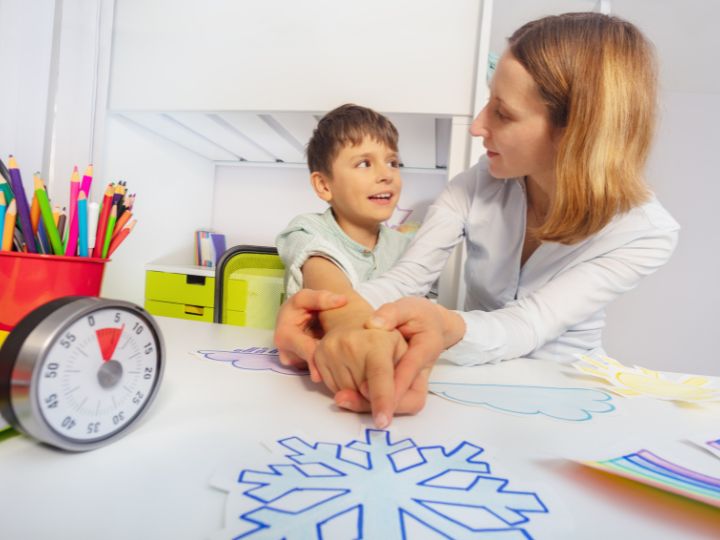Emotional regulation is a vital skill for every child. It helps them identify, understand, and manage their feelings in healthy ways.
For many children, especially those with developmental or emotional challenges, learning how to regulate emotions can feel overwhelming. That’s where music therapy comes in. An evidence-based approach that uses rhythm, melody, and sound to support emotional growth, communication, and self-expression.
How Music Therapy Supports Emotional Regulation
Music therapy provides a creative and engaging way for children to explore their emotions safely. Whether through singing, drumming, or listening to calming sounds, music helps children connect with their inner world and express feelings that may be difficult to put into words.
1. Encourages Healthy Emotional Expression
Children often struggle to express complex feelings such as anger, frustration, or sadness through language. Music therapy gives them a safe outlet for those emotions.
Through improvisation, songwriting, or simply playing instruments, children can release emotional tension in a structured, nonverbal way. This process helps them gain awareness of their emotions and understand that all feelings are valid and manageable.
2. Promotes Relaxation and Reduces Anxiety
Music has a direct effect on the nervous system by calming the body and mind. Soft rhythms, steady beats, and soothing melodies can lower heart rate, reduce stress hormones, and promote relaxation.
For children prone to anxiety or emotional outbursts, these calming experiences can help prevent escalation and encourage self-soothing strategies that they can use outside of therapy sessions.
3. Strengthens Mind-Body Awareness
During music therapy, children learn to notice how different sounds and rhythms make them feel. This mindfulness supports emotional regulation by helping them connect physical sensations with emotional states. For example, they might realize that fast, loud music makes them feel energized or agitated, while slow, gentle tunes help them feel calm and focused.
4. Builds Routine and Predictability
Many children thrive on structure, and music naturally provides rhythm and repetition. Songs with predictable patterns and consistent beats can create a sense of safety and order. Over time, this rhythmic structure helps children anticipate what comes next.
5. Encourages Social and Emotional Connection
Group music therapy sessions teach children to listen, take turns, and collaborate. Making music together fosters empathy and connection, helping children understand the emotions of others while managing their own reactions in social settings.
Integrating Music Therapy in ABA and Other Therapeutic Programs
When used alongside Applied Behavior Analysis (ABA) therapy, music therapy can reinforce emotional and behavioral goals. For example, music can be used as a positive reinforcement tool, a calming transition activity, or a way to practice coping strategies during emotionally charged moments.
Organizations like Heartwise Support, an ABA therapy in Utah, recognize the power of integrative therapies in helping children thrive. By combining ABA principles with creative approaches like music therapy, therapists can make sessions more engaging while addressing emotional and behavioral challenges in a holistic way.
Practical Ways Parents Can Use Music at Home
Even outside of formal therapy, parents can use music to help their child regulate emotions at home. Here are a few strategies:
- Create a calm-down playlist with soothing songs for moments of stress.
- Use rhythmic clapping or drumming to help your child release energy and refocus.
- Encourage singing or humming during daily routines to make transitions smoother.
- Explore different genres together, discussing how each type of music makes your child feel.
Helping Children Find Their Rhythm of Regulation
Every child’s emotional journey is unique. For some, words may not come easily, but through music, they can find a voice, a rhythm, and a sense of peace. Music therapy opens a door to emotional understanding and growth that traditional talk-based approaches may not reach.
At Heartwise Support, we believe in nurturing every aspect of a child’s development. Through personalized ABA and complementary therapeutic programs, we help children build the emotional regulation skills they need to thrive in daily life and beyond.











